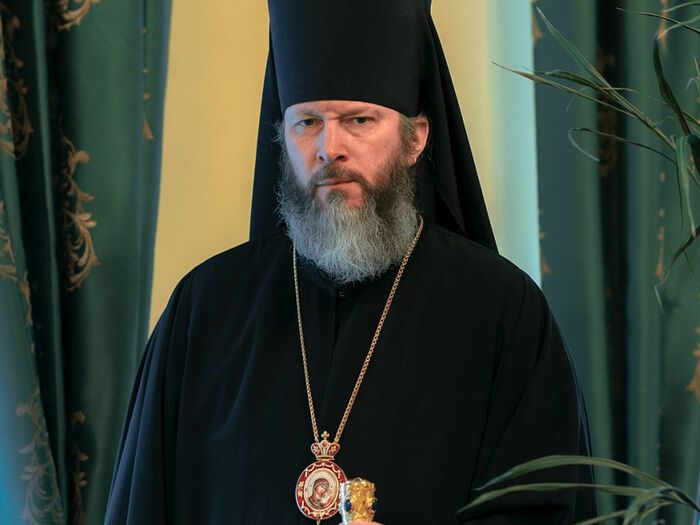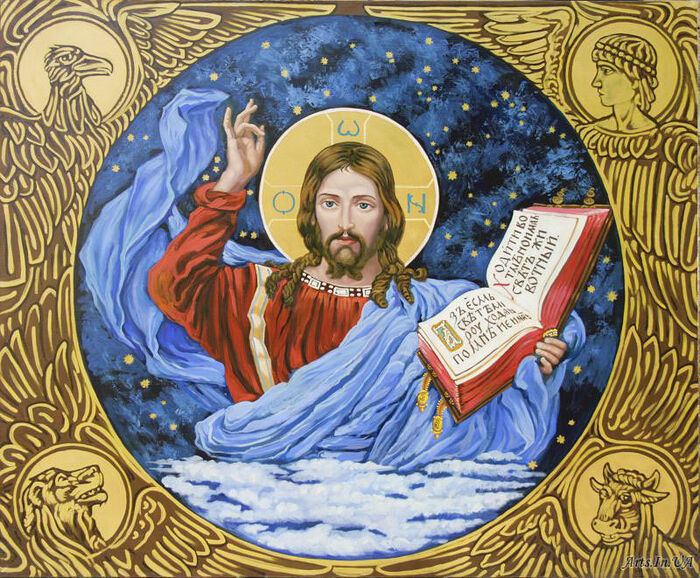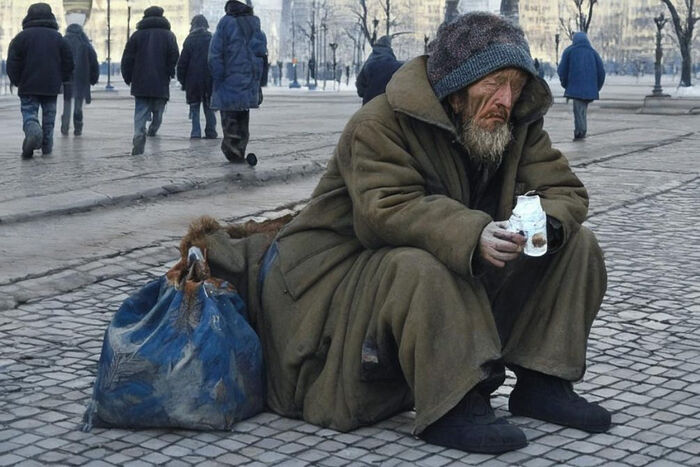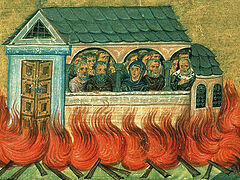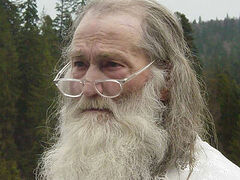A talk about the essence, issues and contradictions of Divine Providence in Orthodox Patristic teaching with Bishop Euthymius (Moiseyev) of Lukhovitsy, the Chairman of the Synodal Mission Department, head of the Commission for Work with Higher Educational Institutions and the Scientific Community of the Moscow Diocese, the Abbot of the Stavropegic Vysoko-Petrovsky Monastery in Moscow.
—Vladyka, in order to develop our topic we should determine how Orthodox tradition understands Divine Providence in general.
—Divine Providence is a very weighty concept that encompasses many factors, including the circumstances of human life. As spiritually experienced people say, Divine Providence is revealed to us largely through the circumstances of our lives, many of which don’t depend on us—the date of our birth and death, our gender, parents, the time in which we live, the country where we were born, the talents that we have been endowed with, etc. In general, there are a number of factors that we have to live with and at least reckon with. Accordingly, when we analyze all this, it will be quite easy to work out what to do with it. The Lord gives us a starting position, and we choose whether we will use it for good or evil. Because freedom, as we know, is a double–edged sword.
A Christian should live according to the principle, which is perfectly formulated in the words of the Divine Liturgy: “Thine own of Thine own we offer unto Thee”—that is, to offer your talents to the Creator, ideally—to devote your whole life, which in this case is a creative process of synergy between man and God.
The Lord gave man talents to cultivate and multiply, because, as the Gospel says, unto whomsoever much is given, of him shall be much required (Lk. 12:48). In some cases, many talents become a spiritual temptation. The Russian nation is susceptible to this, because Russian people are very gifted in every sense of the word, and Russia is a very rich country. But sometimes these spiritual and material riches play a cruel joke on us, because we often relax and begin to think that everything given to us by God is something we can take for granted. We know from history that sometimes this leads to very sad consequences.
Divine Providence should not be confused with predestination, a doctrine that exists, for example, in Islam or Calvinism. This teaching essentially nullifies the free will of man. In Orthodoxy, Divine Providence is called good and all-perfect—that is, it always works for the good of man, guiding him to salvation. It is through the prism of God’s goodness that we must perceive, among other things, the sad and sorrowful circumstances of our lives. They are sad for us, for those who live on earth—until we see the whole picture. In the Gospel of John there are words that the Savior told His disciples in relation to the life to come: In that day ye shall ask Me nothing (Jn. 16:23). That is, when the fullness of the Divine plan for this world is revealed, everything will fall into place and what is unclear now will become clear. Therefore, the fact that many things are hidden from us today is quite normal from an earthly perspective, but we also have a Divine perspective set by Divine Revelation and the Holy Scriptures. But you need to have spiritual wisdom in order to understand the essence and significance of events that take place.
The task of a Christian is to trust in the will of God, to be able to accept the circumstances of your life not just with submission to your fate, but ideally with gratitude. It is desirable to approach the tasks of life creatively, asking, “How can I benefit spiritually from this situation?” and not: “What have I done to deserve this?”
—Should we have a very active position in relation to our lives and Divine Providence in them?
—Of course, as a popular Soviet song says, “Nature has no bad weather.”1 Even if we look at the tragic twentieth century, we see that it brought a great deal of suffering to different peoples, and much blood was shed. But for Russia the last century in many ways triggered very serious development, however paradoxical it may sound. I don’t even mean the accomplishments of the Soviet Union (although this can also be mentioned), but, for example, the phenomenon of Russian emigration, which led to the spread of Russian Orthodoxy around the globe. These are unique fruits and results! True, when a person (or a nation) prospers, lives on his own land, has a Tsar, a good army and a flourishing economy, then why would he move somewhere far away? And in our history, the Lord turned these circumstances so that the Russian people in some way could repeat the fate of the Jews. They spread all over the world, to all continents, settling in all countries. And, interestingly, they began to reproduce their Russian lifestyle in America, Asia, and Europe, enriching local cultures, science, and education.
—In the Orthodox world we can often find the position that we should refuse to take responsibility for bad things in our lives, and act. They call this behavior submission to Divine Providence. What do you think about this, Vladyka?
—My answer is banal—it all depends on the specific person. I have experience dealing with the homeless. These people are very often quite satisfied with their state. It is very hard to change and attract them to another lifestyle, which we regard as normal—when you have a home, a job, and an income. Interestingly, this phenomenon exists not only in the countries that are considered “disadvantaged” in the “civilized world”. It exists in the most prosperous countries as well.
Man is a very complex being, and everyone has his own ideas about well–being and about how to live. We see from the Holy Scriptures that there have always been poor people. Because this is the nature of man—often unpredictable and incomprehensible even to himself. So in this sense, for us as Christians the main criterion is whether someone’s way of life leads him to salvation or not. From the Gospel perspective it is not so important whether a person is poor or rich; what matters is whether his position and state lead him to salvation. Because for some, wealth can be pernicious, while others can be corrupted by poverty.
The spiritual meaning of the existence of such people, as of the infirm, is that the healthy and the rich shouldn’t forget that both health and wealth are very fragile and relative. They shouldn’t forget about mercy, about sacrificing some part of their income to the poor.
—Everyone has his own path.
—You’re right. Surely it is impossible to calculate everything, and probably there’s no need to. By the way, the Soviet Union tried to “unify” people and create a homogenized human society, within which universal equality would flourish. Experience showed that it is unnatural for people to live in such conditions, and division along different parameters is inherent in human nature. It turned out that when diverse people are present in society, with different manifestations of human nature and character, life becomes more harmonious. A monk lives in absolute harmony with himself, possessing nothing material (at least not considering it his own). Someone else considers the goal of his life to have a family and children and earn as much as possible. If these people share their earnings generously with others, it’s not bad. Someone else lives on his own as a convinced bachelor and is happy with that.
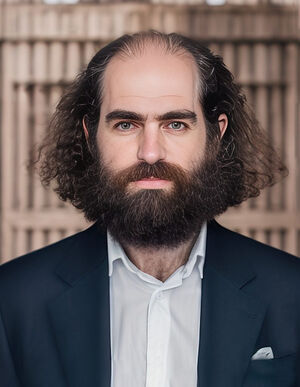 Grigori Perelman Some time ago I watched a film about the mathematician Grigori Perelman. He proved the Poincare Conjecture and solved a problem that great minds could not solve for over a century. Though he is an outstanding mathematician, he declined a prestigious award. I was very impressed by his move. In a world where many people strive for prosperity, royalties, bonuses, titles and the so-called “beautiful life”, this man had the courage and strength to challenge this society and turn down the blessings of this world. He lives in a very humble apartment on the outskirts of St. Petersburg in a five-story block building and eats very modestly. But at the same time, he leads a busy intellectual life, continuing to study science, writing textbooks and other books. So, thank God that there are people who challenge the standards, stereotypes and cliches that exist in society and are able to remain true to themselves, their beliefs, views and principles. It’s worth very much.
Grigori Perelman Some time ago I watched a film about the mathematician Grigori Perelman. He proved the Poincare Conjecture and solved a problem that great minds could not solve for over a century. Though he is an outstanding mathematician, he declined a prestigious award. I was very impressed by his move. In a world where many people strive for prosperity, royalties, bonuses, titles and the so-called “beautiful life”, this man had the courage and strength to challenge this society and turn down the blessings of this world. He lives in a very humble apartment on the outskirts of St. Petersburg in a five-story block building and eats very modestly. But at the same time, he leads a busy intellectual life, continuing to study science, writing textbooks and other books. So, thank God that there are people who challenge the standards, stereotypes and cliches that exist in society and are able to remain true to themselves, their beliefs, views and principles. It’s worth very much.
—Such people are the backbone of our history.
—Undoubtedly. I think that by his act he wrote his name into the history of mathematics to a much greater extent than other talented people and professors, who received their well-deserved prizes. But here, in addition to mathematical talent, this man has spiritual talent.
—Christ says in the Gospel: Take no thought for the morrow: for the morrow shall take thought for the things of itself (Mt. 6:34). Based on this Gospel phrase, where can we find a balance between Divine Providence, “tomorrow”, which will take care of itself, and our personal responsibility for tomorrow?
—The Lord gave us these words as an ideal that Christians should strive for, but which is not attainable for everyone.
We see that, starting from some point, such a phenomenon as monasticism appeared in Church life—that is, people who try to embody this ideal as accurately as possible. Hence all the ideas of non-possession, rejection of property, a certain disregard for the bodily and external aspects of life. It is clear that if a person lives in the world and has a family and children, he must take care of them. But if any provide not for his own, and specially for those of his own house, he hath denied the faith, and is worse than an infidel (1 Tim. 5:8). At the Last Judgment we will answer before the Lord based on the circumstances we were in. The Old Testament punished those who violated marital fidelity, but the Lord says that whosoever looketh on a woman to lust after her hath committed adultery with her already in his heart (Mt. 5:28). Feel the difference. It’s the same here.
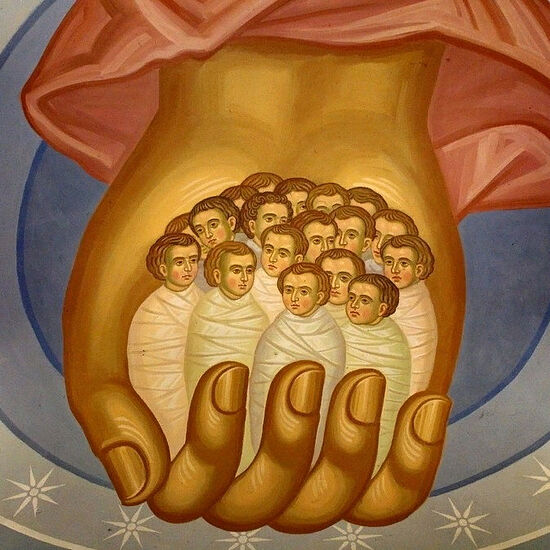 A fragment of the Greek Icon “We Are All in the Hands of God”
A fragment of the Greek Icon “We Are All in the Hands of God”
There is a high ideal of life when a person wholeheartedly trusts in God, and the Lord will never put such trust to shame. But to have such trust one must have boldness, which stems from spiritual experience that allows one to understand when boldness is appropriate and when it is a challenge to God. Take the Gospel story when the devil in the desert tried to persuade the Savior to throw Himself from a cliff, so that the Angels would catch Him. But Christ did not succumb to this temptation. One must have spiritual wisdom to distinguish boldness from impudence. We have no right to demand from God that He Himself nourishe, warm, and feed us. Another thing is that the Lord gives us everything we need for life, but looks at the human heart. If He sees that someone really needs help, He will definitely send it—usually in the most unexpected way. The Lord cares for every human being, but this doesn’t relieve us of our responsibility and obligation to earn our bread by the sweat of our brow and provide for our families, to feed ourselves and our children.

